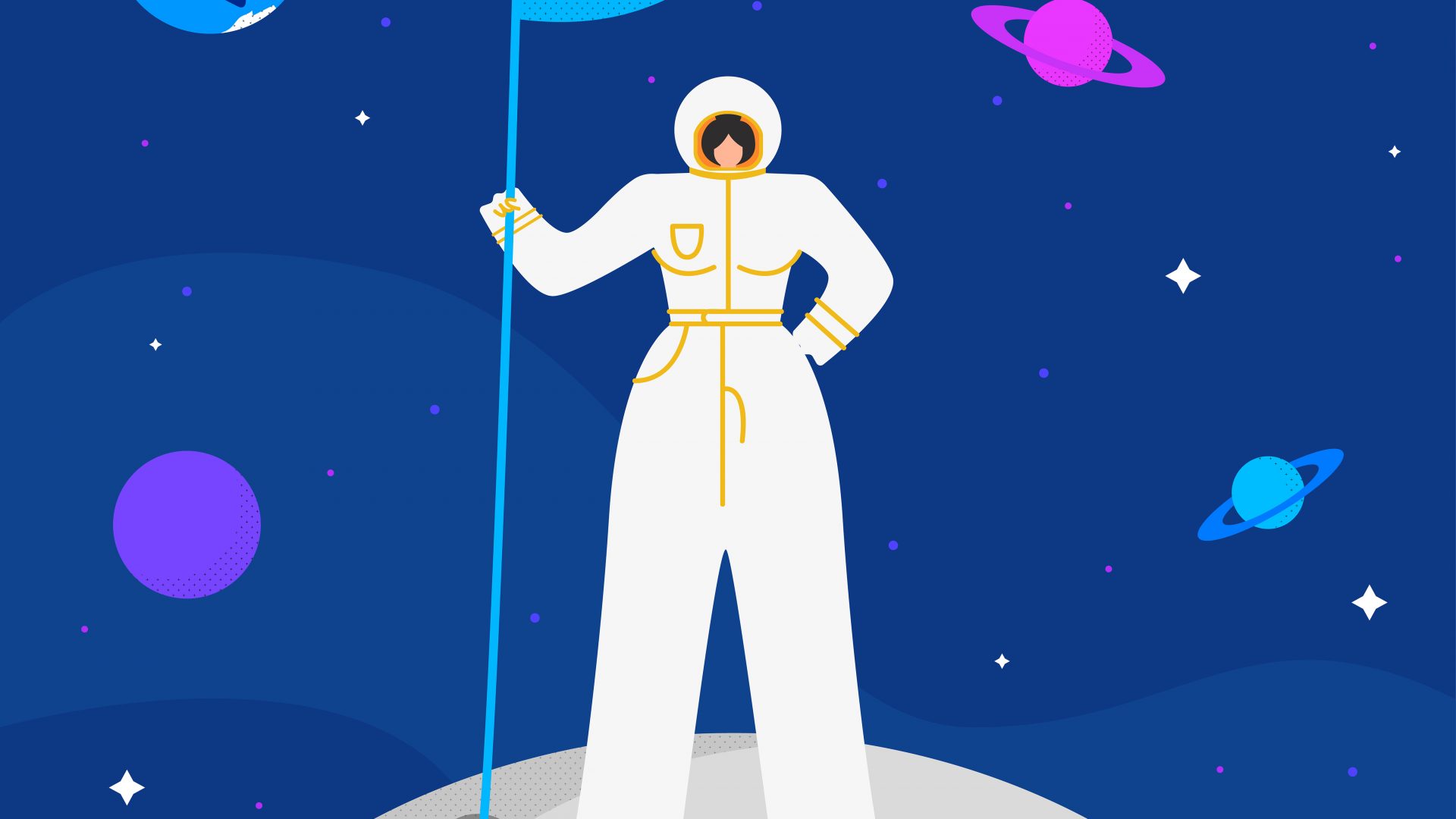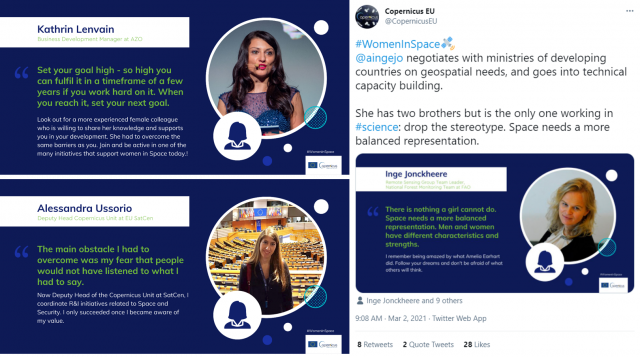
experience
amplifying the voices of women in space
Copernicus, the European Union’s Earth Observation Programme, offers information services based on satellite Earth Observation and non-space data to European citizens, public authorities, and private service providers. Vast amounts of global data from satellites and ground-based, airborne and seaborne measurement systems are being used to improve the quality of life.
Today, over 150,000 international organisations regularly use the information services provided freely and openly accessible by Copernicus.
challenge
Like in many scientific fields, Earth Observation still faces challenges to achieve gender equality objectives set by the European Union. Women are involved in various roles in the programme’s production flow, such as physicists, geographers, computer scientists, oceanographers, civil engineers, policymakers, etc. While their role is not always visible, their efforts are nevertheless essential to the Copernicus Programme’s success. To acknowledge women’s crucial work, the European Commission asked logos to design and run, on behalf of the Directorate-General for Defence Industry and Space, a one-month digital campaign to celebrate these inspiring women.
The Women in Space campaign sought to raise the profile of passionate scientific women who play an essential role in Copernicus, sharing their experience and advice to help the new generation of scientific girls finding their paths. In addition to this, the digital campaign worked alongside the Women in Copernicus project, which highlights the challenges faced by Women working with Copernicus data around the world. The campaign aimed to promote gender equality in the research and innovation field and the project’s activities.
solutions
On behalf of the European Commission Directorate-General for Defence Industry and Space, logos developed a strategic campaign based on major milestones taking place during the campaign, such as the International Women and Girls in Science Day (February 11) and the International Women’s Day (March 8).
logos worked together with the Women in Copernicus project and compiled numerous testimonials from women working with Copernicus around Europe to demonstrate their roles and responsibilities better.
Then, on behalf of the European Commission Directorate-General for Defence Industry and Space, logos created specific communication assets that would appeal and engage with the targeted audiences. We developed a series of clear visual components, such as quote cards and crisp visuals. The quote cards highlighted women’ success stories, explaining their journey to reach their positions, the obstacles and challenges they had to face and their main piece of advice for the next generation of young female scientists.
Copernicus’ three social media channels on Twitter, Instagram and Facebook were all used. logos adopted a tailored approach with unique and strategic messages per channel to ensure reaching the respective audiences. Throughout the campaign, we also organised polls related to the Women in Space profiles published to increase engagement. A successful campaign requires good hooks and assets but also an active digital presence. For one month, logos posted content several times per week, connected with the audiences by answering comments and shares, and finally, mentioned and tagged relevant stakeholders.
results
Women in Space managed to be successful and quickly gained broad support.
The digital campaign garnered several social media mentions and a high media impression rate.
- 27 quote cards published
- 435,000 media impression raised
- 5,000 engagements
services
campaign design & delivery, social media management, editorial approach & content strategy,, visual assets production
